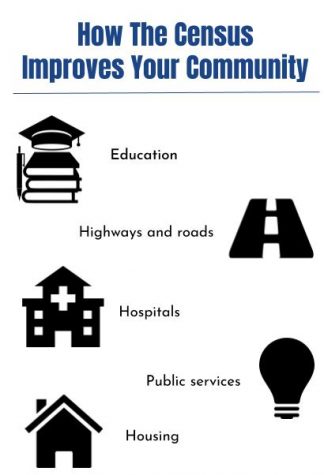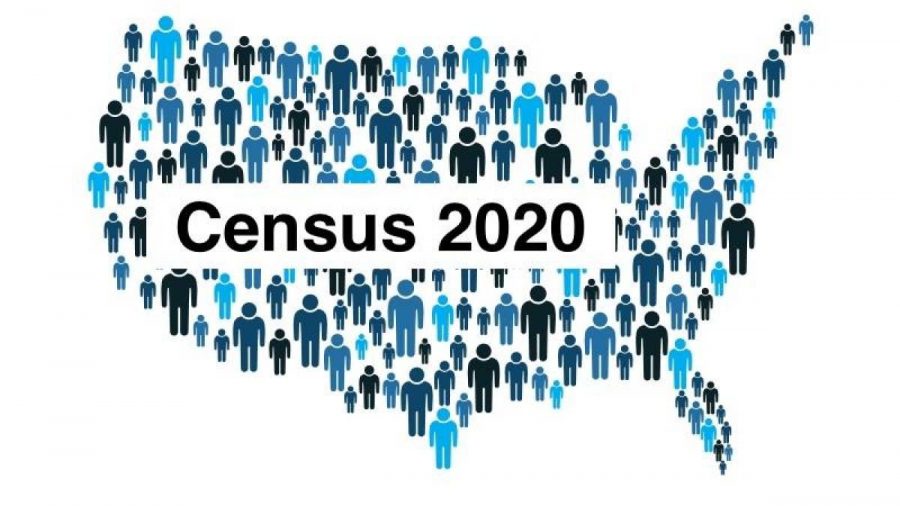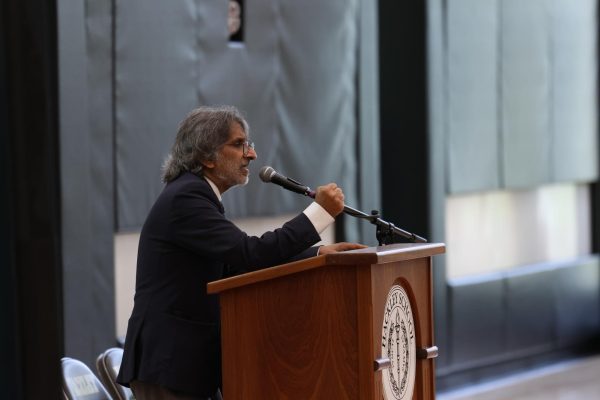2020 US Census Continues Despite Challenges from COVID-19 and Trump Administration
From social media ads to yard signs to government officials showing up at your house, news of the 2020 Census has been everywhere, but what exactly is the Census? The Census is a mandatory count of the US population that is conducted every 10 years. First instituted in 1790, the Census is mandated in the US constitution and is an essential aspect of governing, as it allows for apportioning representation in Congress and allocating Federal funding.
Although COVID-19 has halted many events this year, the Census continued as planned and precautionary measures were taken. One can complete the Census online, over the phone, or by mail and it only takes an average of 10 minutes. Only one person per household is required to participate and respond on behalf of their family. As for the content, the Census is completely private and asks basic questions about race, sex, and age.
The Census holds much importance in the United States government and economy. Initially, the Census was conducted to apportion the number of seats each state receives in the House. However, over time, it evolved to serve a greater purpose in providing critical data to lawmakers who use it to provide daily services and products. The Census data helps dictate where billions of dollars in federal funding are allocated to such as roads, hospitals, and schools. As well, the Census is important in the private sector, as many businesses use information from the Census to decide where to open new stores and more.

When asked about the importance of the Census, Sophomore Elizabeth Rudge stressed, “the Census is an imperative part of the democratic process, determining the amount of representation and funding an area receives in government.”
Lately, controversy has surrounded the Census. Last year, President Trump advocated for adding an additional question to the Census asking if the respondent is a citizen of the United States. The proposed question was rejected later when presented to the Supreme Court in June of 2019.
President Trump and Commerce Secretary Wilbur Ross explained that their reasoning for this additional question was to enforce the Voting Rights Act and protect minority voters’ rights. However, critics have argued that the true reason for this question is to undercount non-citizen and Latino populations which would benefit Republicans in the House of Representative and further anti-immigration efforts. Chief Justice John Roberts voted against the proposed question, stating the reason provided by Mr. Ross for its addition was ”contrived” rather than “genuine”.
Uncertainty has also surrounded the deadline date for the Census. Because of COVID-19, the Census Bureau moved to extend the deadline for submission to October 31st, although they have faced resistance from the Trump Administration pushing to end the count a month earlier on October 5th. Recently the Supreme Court ruled to end the Census early on October 15th, overturning a federal court order allowing the count to continue to the 31st.
Historically, undercounts of certain populations have been a consistent problem with millions of individuals considered “omissions” in the 2010 Census. Minorities, immigrants, homeless people, young children, and those in remote areas have the highest risk of going unaccounted for.
Mr. Steven Fitzpatrick, who teaches the Government and Politics class, explained an undercount in these vulnerable communities can have extreme repercussions in the loss of essential government programs such as Medicaid which provides health coverage to low-income individuals. When these communities are undercounted, the accurate population isn’t reflected in the Census so an insufficient amount of funds and resources are provided.
Many of these individuals are unable to complete the Census because of the unavailability of technology or are worried about the data being used against them. Especially with the prospect of a question regarding citizenship status, many immigrants are wary of participating in the Census.
Mr. Fitzpatrick stated the most important action to increase the turnout rate for the Census is to simply educate people what it’s about and stress that the purpose of this information is to help the community, not harm it.






![Although the affect of COVID-19 has been on a decline with less cases and deaths allowing most of us to remain mask free, people on the Hilltop are still choosing to mask up. Personal health concerns as well as helping an elderly neighbor are reasons as to why middle school science teacher Emma Olsen still wears a mask years after the COVID-19 pandemic began. Since I am helping take care of him, you know I go over to work with his dogs, that kind of thing; I dont want to bring [the virus] home to him, Ms. Olsen said.](https://hsdial.org/wp-content/uploads/2024/03/IMG_1713-450x600.jpg)









